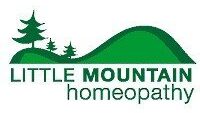
People who go to the mainstream media or wikipedia for their information about homeopathy believe that homeopathy pills are just sugar (placebo) pills. Unfortunately, many mainstream outlets fail to understand how homeopathic medicines are made, have not been educated on the scientific explanation of how our medicines work, and are not aware of the numerous scientific studies proving the effectiveness of homeopathy.
Learn about how homeopathic medicines are made: How are Homeopathic Medicines Prepared?
Learn about the science of homeopathy, the explanation of how homeopathic medicines work: How do Homeopathic Medicines Work?
Learn about the numerous scientific studies proving the effectiveness of homeopathy: Do Studies Prove that Homeopathy is Effective?
Meta-Analysis of Studies Prove that Homeopathy is more Effective than Placebo

Meta-analysis of 89 trials of homeopathic medicine versus placebo. Result: significantly in favour of homeopathy (OR 2,45 (95% CI 2,05-2,93)). This meta-analysis included 186 placebo-controlled studies of homeopathy published until mid-1996, of which data for analysis could be extracted from 89. The overall odds ratio was 2.45 (95% confidence intervals 2.05-2.93) in favour of homeopathy, which means that the chances that homeopathy would benefit the patient were 2.45 times greater than placebo. When considering just those trials of high quality published in MEDLINE listed journals, and with predefined primary outcome measures, the pooled odds ratio was 1.97 and significant. Even after correction for publication bias the results remained significant. The main conclusion was that the results “were not compatible with the hypothesis that the effects of homeopathy are completely due to placebo”. If the result of new trials were to show no difference between homeopathy and placebo, we would have to add 923 trials with no effect with 118 patients in each in order to balance the two.
Report to the European Commission directorate general XII: science, research and development. Vol 1 (short version). Brussels: European Commission, 1996:16-7.
HMRG report with overview of clinical research in homeopathy, identified 184 controlled clinical trials. They selected the highest quality randomized control trials, which included a total of 2617 patients for a meta-analysis. This meta-analysis resulted in a p-value of 0.000036 (which means that results are highly significant) indicating that homeopathy is more effective than placebo. The researchers concluded that the “hypothesis that homeopathy has no effect can be rejected with certainty”. Homeopathic Medicine Research Group.
Placebo Effect in Homeopathy is Equal to Conventional Medicine
METHODS: We performed a systematic literature analysis on placebo-controlled double-blind RCTs on classical homeopathy. Each trial was matched to three placebo-controlled double-blind RCTs from conventional medicine (mainly pharmacological interventions) involving the same diagnosis. Matching criteria included severity of complaints, choice of outcome parameter, and treatment duration. Outcome was measured as the percentage change of symptom scores from baseline to end of treatment in the placebo group. 35 RCTs on classical homeopathy were identified. 10 were excluded because no relevant data could be extracted, or less than three matching conventional trials could be located.
RESULTS:In 13 matched sets the placebo effect in the homeopathic trials was larger than the average placebo effect of the conventional trials, in 12 matched sets it was lower (P=0.39). Additionally, no subgroup analysis yielded any significant difference.
CONCLUSIONS: Placebo effects in RCTs on classical homeopathy did not appear to be larger than placebo effects in conventional medicine.
Plant and Animal Studies Prove that Homeopathy is not Placebo
Homeopathy has been proven to have a positive effect on animals, who obviously cannot be influenced by the placebo effect.
Find out more about Animals Studies and Homeopathy
Find out more about Plant Studies and Homeopathy
